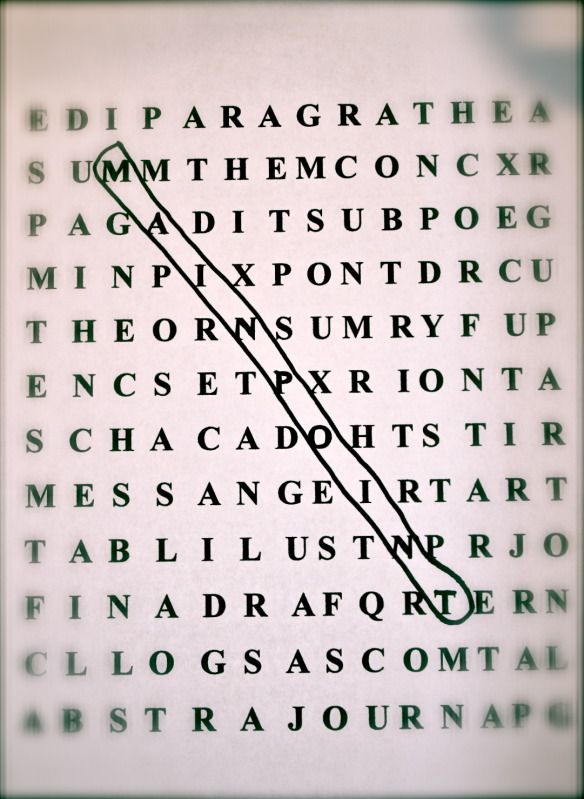 |
| The clarity of college writing. |
Here's the truth: If you haven't learned to write concisely and eloquently by the end of your high school career, you probably won't improve your writing in college. In fact, expect your writing skills to atrophy in college, regardless of your current writing abilities.
Here's why.
In college you will quickly be expected to master academic writing, which is quite different from real world writing. Rather than bore you with a dry explanation of academic writing, I'll give you some examples of the differences between academic writing and real world writing.
In college, you can litter your paper with big words to show off your expansive vocabulary. In the real world, you need to write at the third grade level to be understood by the majority of your readers.
In college, your professor knows more the subject of your paper than you. You'll get a pass if a couple of paragraphs are vague or sloppy. In the real world, you'll often have to explain things to a reader who knows less about a subject than you. Unclear writing can make your entire document unreadable.
In college, the teaching assistant will probably let a few errors in your essay slip, and you'll still get an A. In the real world, one typo can get your resume thrown in the trash.
You get the point. By the time a student graduates from college, he or she will develop many writing habits that are the opposite of what real world writing calls for.
What's worse is that college throws many barriers in the way for anyone who seeks to write clearly. Professors will assign you readings that set a terrible example for students. Consider this passage form Adorno and Horkheimer's "The Culture Industry," which is a standard reading for communications students:
"The sociological theory that the loss of the support of objectively established religion, the dissolution of the last remnants of precapitalism, together with technological and social differentiation or specialization, have led to cultural chaos is disproved every day; for culture now impresses the same stamp on everything."
While this is a mild example, the above passage is just a preview of the convoluted writing that you'll be swimming in when you go to college. In about two years, your writing style will mirror the above passage. In two years, your writing will go over the head of a third grader and, thus, the general public.
When you're not struggling to synthesize bloated journal articles written by tedious scholars, you'll find many other barriers to improving your writing in college. First, you'll have to conform to the quirks and conventions of your professor, which will stifle your thoughts and induce writer's block.
Quick Tip: English professors are notorious for making papers more difficult to write than they have to be. To compensate for their insecurities about being less important than the science department, some English professors try to make writing seem as complex an engineering.
Next, after conforming to your professor's crazy expectations, you'll have to master forms of citation that have no applications outside of academia. Lastly, you'll need to incorporate jargon into your text that you'll never use again once you finish college. And after all of this effort, your writing will still be lacking as you struggle to compose a simple cover letter for you first job.
If you really want to develop writing skills that will be relevant in your day-to-day and professional life, go to Amazon.com and purchase a book on business writing. It will be far less expensive than English Composition 101 and far more effective.
ugh I had to read fredric Jameson's stuff about psotmodernism when i got into college. it takes a lot of reading before his writing style starts to even make sense, and even then you still feel stupid
ReplyDeleteThis article has so many errors! I used to grade university essays. The poor writing here on this blog reflects the poor writing skills in academia.
ReplyDelete